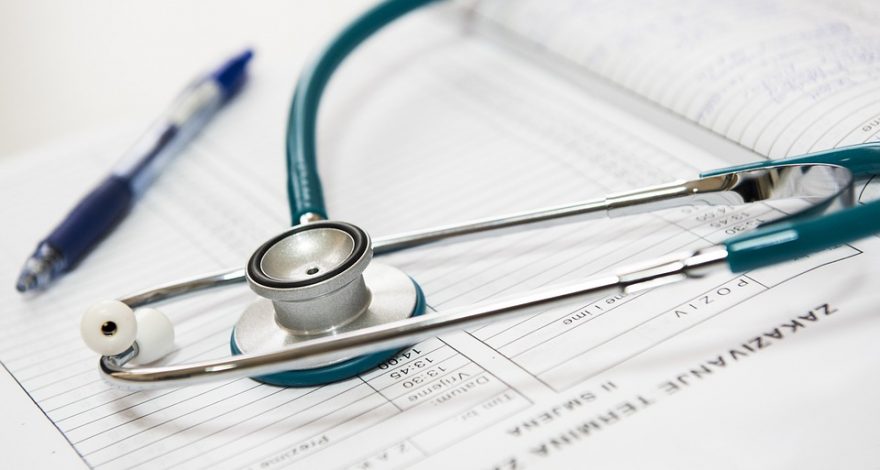USCIS Medical Exam: What to Expect, Required Tests & How to Prepare
If you’re applying for a green card or adjustment of status in the United States, one important step in the...

If you’re applying for a green card or adjustment of status in the United States, one important step in the immigration process is the USCIS medical exam. Conducted by a USCIS-designated civil surgeon, this exam ensures that applicants do not have any health conditions that could make them inadmissible to the U.S. for public health reasons.
What Is the USCIS Medical Exam?
The USCIS (United States Citizenship and Immigration Services) medical exam, also known as the I-693 medical examination, is a health screening required for most applicants seeking permanent residency (green card status). The purpose is to identify health-related grounds of inadmissibility under U.S. immigration law, such as communicable diseases or incomplete vaccinations.
This exam is not a general physical it is specifically tailored to meet immigration health requirements.
Who Needs to Take the USCIS Medical Exam?
You are generally required to undergo the USCIS medical exam if you are:
- Applying for a green card through adjustment of status in the U.S.
- Entering the U.S. as an immigrant through consular processing
- A refugee or asylee adjusting your status
- A fiancé(e) of a U.S. citizen applying for status adjustment
Note: Nonimmigrant visa applicants (e.g., tourist, student, work visa holders) do not typically require this exam.
Who Can Perform the Exam?
Only a USCIS-designated civil surgeon (for applicants inside the U.S.) or a panel physician (for applicants outside the U.S.) can perform this medical exam. You can find an approved doctor near you using the USCIS Find a Doctor tool.
What to Bring to Your USCIS Medical Exam
Being prepared can help the exam go smoothly. Bring the following documents and items:
- A valid government-issued photo ID (passport, driver’s license, green card application receipt)
- Vaccination records (translated into English, if applicable)
- Form I-693, Report of Medical Examination and Vaccination Record (you can download and fill out Part 1 but do not sign it until the doctor instructs you)
- A list of current medications and medical history
- Health insurance card (if the provider accepts insurance)
- Any previous TB test results or chest X-rays (if available)
What to Expect During the USCIS Medical Exam
1. Medical History Review
The doctor will ask about your medical history, including:
- Previous illnesses
- Hospitalizations or surgeries
- Mental health conditions
- Drug or alcohol use
- Current medications
Be honest and thorough omissions can cause delays or legal issues later.
2. Physical Examination
The civil surgeon will conduct a general physical exam, which typically includes:
- Checking your heart, lungs, eyes, ears, nose, and throat
- Measuring height, weight, and blood pressure
- Examining your skin, abdomen, and lymph nodes
3. Required Lab Tests
The USCIS medical exam includes specific lab tests and screenings to identify public health risks:
Tuberculosis (TB) Test
- Applicants aged 2 and older must take a TB test (usually a QuantiFERON blood test).
- If the test is positive, a chest X-ray is required to rule out active TB.
- In some cases, a sputum test may also be ordered.
Syphilis Blood Test
- Required for applicants aged 18–44.
- A RPR blood test is used, and if positive, further testing or treatment may be needed.
Gonorrhea Test
- Required for applicants aged 18–24 and possibly up to age 44 based on risk factors.
- A urine sample is typically used.
4. Vaccination Review
The doctor will verify that you have received all required vaccines for immigration, including:
- COVID-19
- Measles, Mumps, Rubella (MMR)
- Tetanus-diphtheria-pertussis (Tdap)
- Varicella (chickenpox)
- Hepatitis A and B
- Influenza (during flu season)
- Pneumococcal (for certain age groups)
If you’re missing any vaccines, the civil surgeon can administer them or direct you to a provider who can.
What Happens After the Exam?
Once all testing is completed, the doctor will:
- Fill out Form I-693.
- Place it in a sealed envelope—do not open this envelope. USCIS will reject the form if the seal is broken.
- Provide you with a copy for your records.
You will then submit the sealed I-693 form to USCIS:
- Either include it with your green card application (Form I-485)
- Or bring it to your USCIS interview if not submitted earlier
How Long Is the Medical Exam Valid?
- The USCIS medical exam is valid for up to 2 years from the date the civil surgeon signs Form I-693 (as long as it’s submitted to USCIS within 60 days of the signature).
Tips to Prepare for the USCIS Medical Exam
- Schedule early: Some tests take days or weeks for results.
- Pause medications if advised: Ask your doctor if any prescriptions (like antihistamines) should be paused.
- Eat and hydrate normally: There’s usually no fasting required.
- Bring complete vaccination records: This saves time and may reduce additional vaccinations needed.
- Be honest: Accurate health disclosure is critical.
Conclusion
The USCIS medical exam is a key step in your green card journey. With the right preparation and understanding of the process, it can be a smooth and stress-free experience. The goal is to ensure that incoming residents meet public health standards, protect community wellness, and start their new lives in the U.S. with a clean bill of health.



